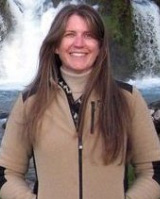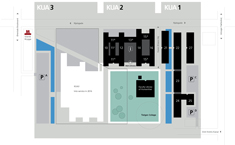Sustainable Archaeology: From Concept to Application
Guest lecture by Rhonda Bathurst, University of Western Ontario, Canada.

Rhonda Bathurst.
Sharing data
Sustainable Archaeology is a collaborative initiative between the University of Western Ontario, in London, Ontario, and McMaster University, in Hamilton, Ontario, advancing a sustainable form of archaeological practice and research.
Provincial legislation in the 1970's mandated that any land projected for development in Ontario, Canada, must first be assessed for evidence of cultural heritage. As a result, Cultural Resource Management (CRM) companies burgeoned and the products of archaeological excavations quickly overflowed the available capacity to house them. There was no long term plan on how to manage, store or share the collection of such volumes of data with the rest of the archaeological community.
Accessibility, sustainability and dissemination
Today, archaeological practice in Ontario is dominated (80%-90%) by commercial-based fieldwork, undertaken on behalf of the public and private sector. The evidence that results from this work is mostly unknown to researchers and First Nations communities, due to a lack of access to either collections or the reports that are generated from this work ("grey
literature").
It is the goal of the Sustainable Archaeology project to provide a solution to this problem of accessibility, sustainability and dissemination of our cultural heritage.
Other lectures by Rhonda Bathurst at the Saxo Institute:

